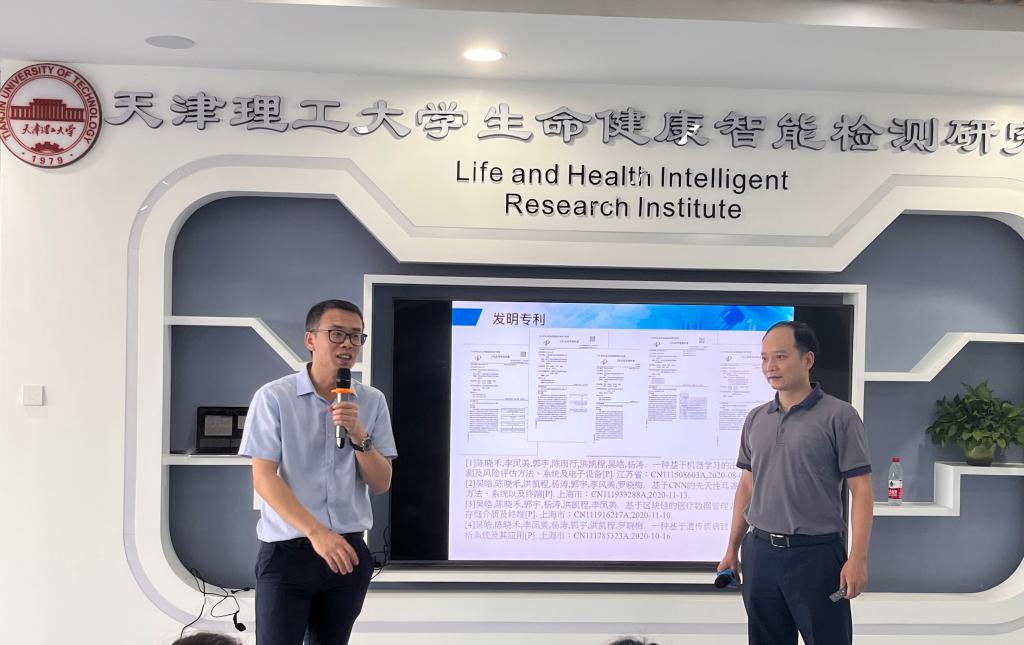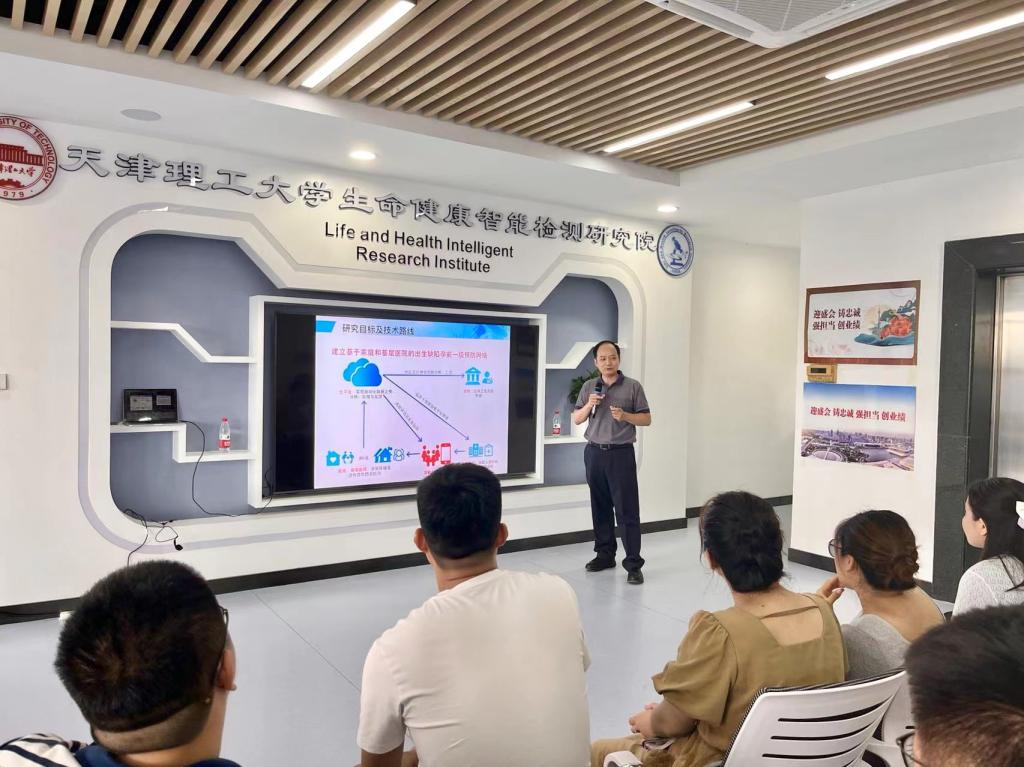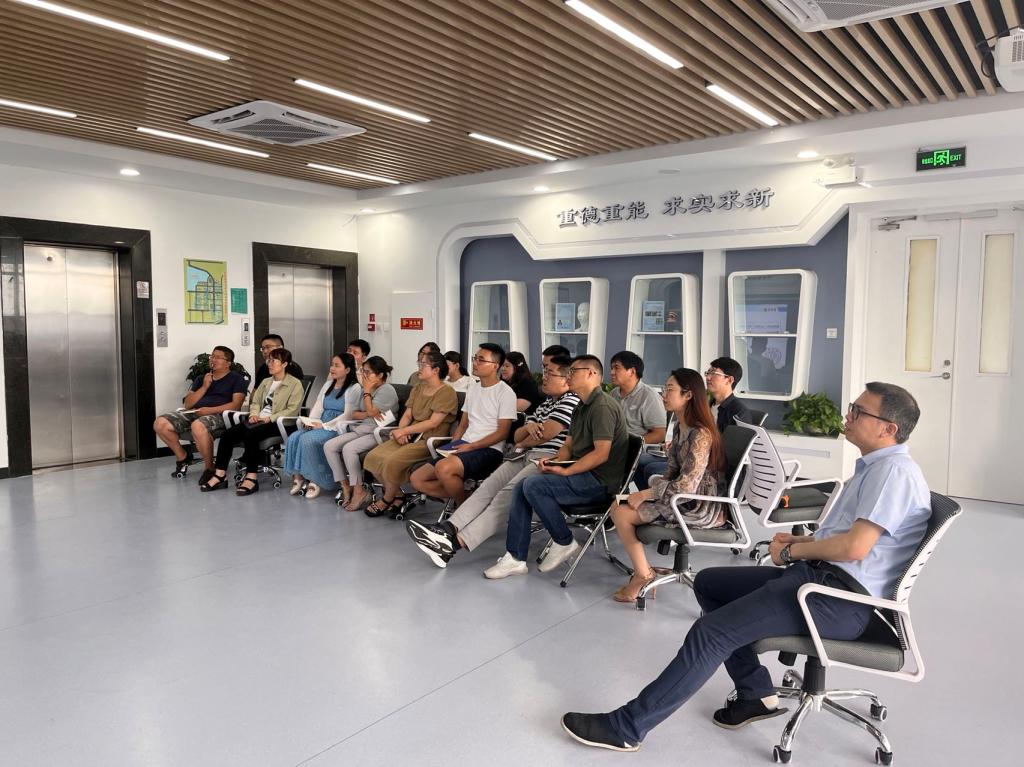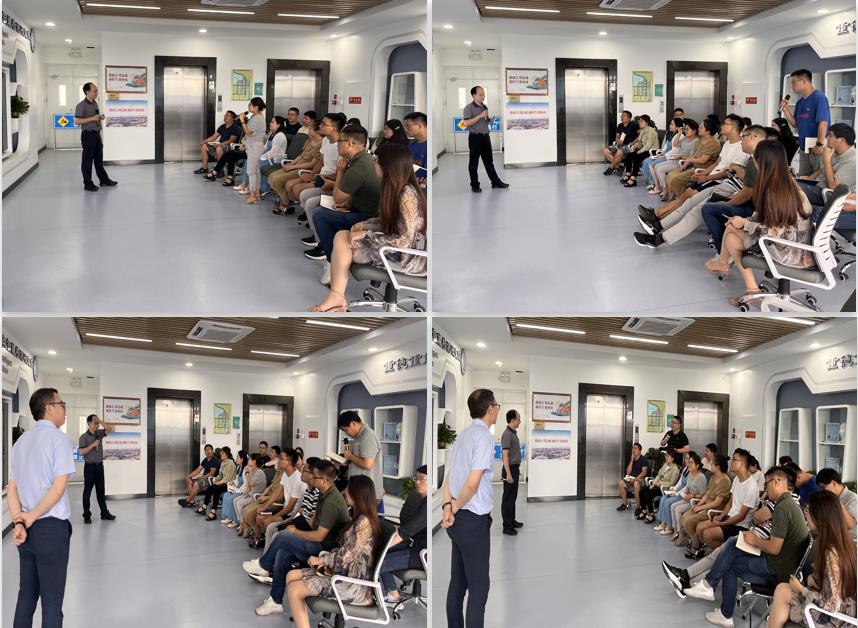At 16:00 on July 14, 2022, Professor Chen Xiaohe, Distinguished Professor of the University of Electronic Science and Technology, Researcher of the Hundred Talents Program of the Chinese Academy of Sciences, and expert in the field of artificial intelligence and signal integrity-Professor Chen Xiaohe visited our institute and gave an academic report exchange. The meeting was hosted by Prof. Wang Tie, Director of the Life and Health Intelligent Research Institute of Tianjin University of Technology, and all teachers of the Institute attended the presentation.

The topic of this presentation is "Machine learning based algorithm for genetic hearing loss diagnosis and screening model".Professor Chen focuses on the following aspects:
First, Prof. Chen Xiaohe gave a detailed background of the study: China Birth Defects Report (2012) showed that the incidence of birth defects in China is as high as 5.6%, and primary prevention is a proactive and non-invasive preventive measure, which is the most cost-effective way to improve the quality of the birth population. Several major environmental and genetic causative factors for birth defects in the Chinese population have been largely identified and applied for early intervention and primary prevention in high-risk groups. The key technical issues that need to be solved in the field of preconceptional prevention of birth defects in China include the development of key technologies for the integrated mobile medical Internet of Things (IoT) cloud platform for primary prevention of birth defects in families, communities, regional medical centers and tertiary hospitals, and the realization of core technology breakthroughs such as intelligent analysis of test data.

In this context, Prof. Chen and his team focused on the most common congenital hereditary hearing loss (HHL) in the world, and deeply mined the collected genetic sequencing data to build a genetic diagnosis model for HHL, and came to the following conclusions: the previously unreported c.235delC was found to be significantly negatively correlated with p.V27I and p.E114G; among the six machine learning models, the support vector machines had the highest AUC values for genetic diagnosis of HHL; among the machine learning models, genetic risk assessment models, and expert diagnosis models, the machine learning models performed best; the smallest set of feature loci that could be accurately predicted was obtained as the top 11 loci by the one-by-one addition method.
The academic results were first published in the Lancet subjournal eBioMedicine, and six invention patents were applied for, and were also promoted in ten provinces.

Finally, Prof. Chen made further prospects for his future research: the range of genes collected and the number of samples can be further expanded to better fit the clinical needs, and the algorithm will continue to be optimized to improve the scores of each assessment index.
After the meeting, the participating teachers gave positive feedback on the content of the report and their own scientific work, and put forward their views and questions on some scientific problems mentioned in the report, and Prof. Chen Xiaohe also answered the questions raised by each teacher carefully and exchanged and discussed with everyone. The presentation not only further promoted the scientific research enthusiasm of our teachers, but also broadened the academic horizons and scientific ideas of both sides.
